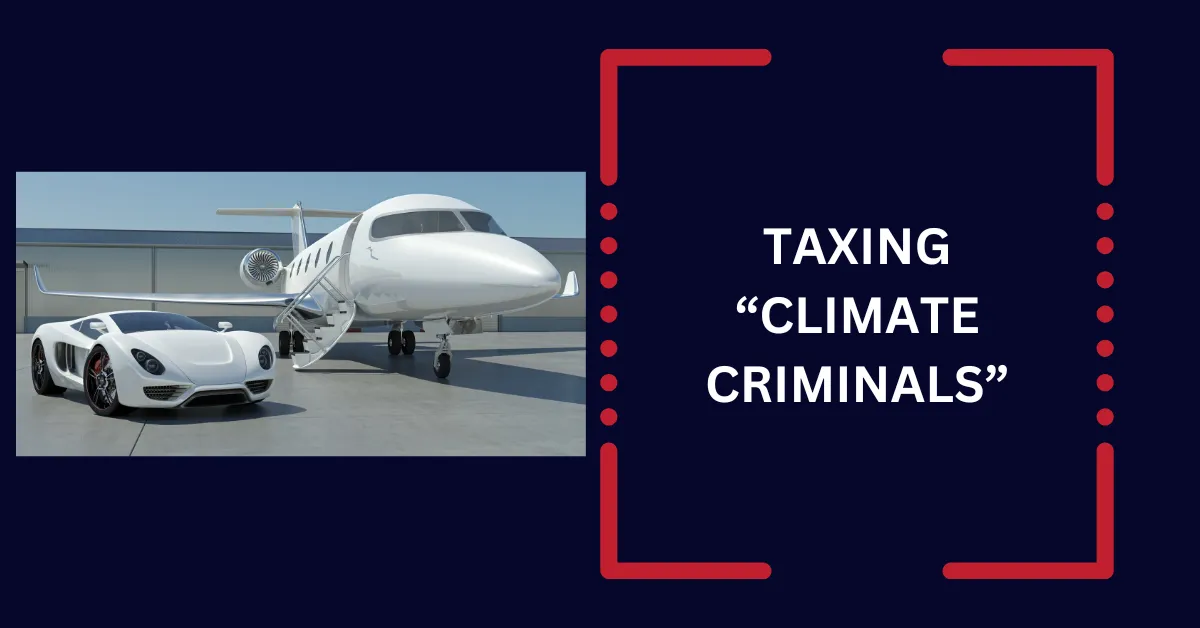
Taxing "Climate Criminals"
Last week, we discussed how the 2017 tax cuts are scheduled to expire at the end of 2025—and how the election results make it likelier that Washington will extend them. Here's the problem: it won’t be cheap. The Congressional Budget Office estimates extending the current rules will blow a $4 billion hole in the budget over the next 10 years, along with an unknown amount of higher interest payments on the new debt. That’s making life difficult for a new administration that also wants to eliminate tax on tips, overtime pay, and Social Security benefits, along with other giveaways.
So, where will Washington get the money to pay for everything it wants? If income taxes are off the table, it will have to come from new sources: tariffs, sales taxes, and more exotic levies like taxes on wealth or unrealized gains.
Back in 1973, a British engineer teaching at MIT proposed taxing carbon emissions. Ideally, taxing those emissions, rather than limiting them directly, can raise revenue while letting market forces shape the most efficient way to cut pollution. Since then, 27 countries have imposed varying forms of carbon tax. And as with any other tax, it raises questions of fairness. Should the poor people who emit the least amount of carbon pay the same tax as the rich people who emit the most?
Now, there’s a new proposal from a pair of law professors that addresses those fairness issues. Clinton Wallace from the University of South Carolina and Shelley Welton from the University of Pennsylvania have just published a new paper in the Cornell Law Review called Taxing Luxury Carbon Emissions. Their plan takes aim at so-called climate criminals like Kim Kardashian, Elon Musk, and Taylor Swift, whose private jets, yachts, and multiple mansions produce so much more pollution than the average American with just one house flying Spirit Air to save a buck or two.
How would it work? The authors propose a targeted tax on luxury consumption that they argue would be less unpopular and less intrusive than a broad-based tax on all consumption. Specifically, they would take aim at all the toys rich people use to separate themselves from the mass of sweaty peasants clogging commercial airports, cruise ships, and resorts. They envision a luxury emissions activity report (LEAR) that you would file with your 1040 to disclose if you made use of a private jet, yacht, vacation home, supercar, or even high-volume commercial flying. The LEAR would work like the current foreign bank account reporting rules that require you to disclose if you hold any foreign bank accounts. The authors don’t propose specific rates; however, they would support taxes on buying the toy along with taxes on fueling it and operating it.
This luxury carbon tax concept suggests it might be easier to "cure" regressive taxes, like sales taxes and value-added taxes, that hit lower-income consumers harder than the rich. So why not craft a progressive sales tax on higher-priced goods? A $50 sweater at Target might carry a 5% tax, while a $500 sweater at Louis Vuitton might carry a 20% tax. (Who are we kidding? You can’t find a $500 sweater at Louis Vuitton!)
You may be reading this email and thinking none of this applies to you. And while you probably aren’t reading it in your G-Wagen on your way to your Hamptons estate or flying your jet to your Aspen ski lodge, it’s just a matter of time before legislators start sniffing in your direction. That’s why proactive planning is so important if you want to pay less. That’s why we’re here to keep an eye out for you!